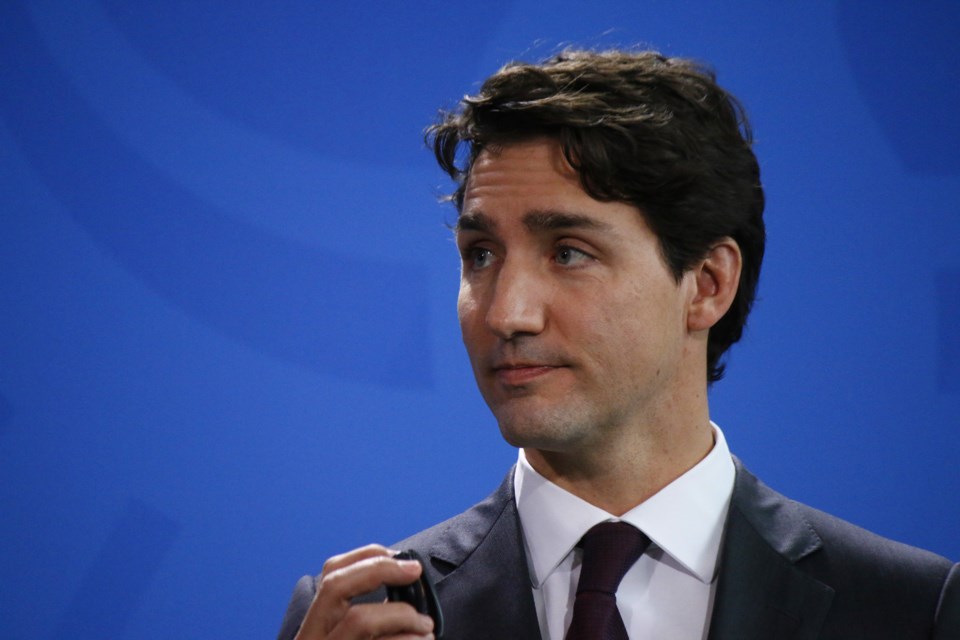The short version is a Liberal minority government.
The long version is the Liberals have received something short of a renewed mandate – more like a slap on the wrist, if a gentle one. They also have a country with pretty stark regional divisions, a reinvigorated Quebec separatist party, a new Green threat to their Atlantic electoral fortress, an NDP caucus who thinks they won despite dropping down to 24 seats, and a seething Conservative opposition anxious for a second kick at the can.
The Conservatives narrowly “win” the popular vote, but not the seat count
A government formed by the party that loses or comes in second in overall popular vote isn’t unheard of – BC experienced it in 1996, and of course Hillary Clinton over Donald Trump. Does it matter? Not really. It can subtly undermine any mandate the Liberals might claim, but it’s not a point the Conservatives should hit too often or hard.
Get used to this parliament – another election isn’t likely anytime soon
After British Columbia’s 2017 election, the NDP and Greens entered into a formal Confidence and Supply Agreement, outlining the terms and logistics of how the two parties would move forward. Because it has worked – after all, the NDP are still in power two years later – it was reasonable to suppose a minority parliament might lead to something similar in Ottawa. In fact, several federal parties contacted John Horgan’s office over the past week for advice and insight.
But given these results, a formal agreement probably won’t happen, simply because the Liberals don’t need to. Unlike Horgan two years ago, Justin Trudeau is an incumbent prime minister; there are less worries about stability.
Even more than that, it’s hard to see which party (other than the Conservatives) would force another quick election. The NDP in particular are broke and simply can’t afford another campaign. The Greens are still marginal in most of the country. The Bloc Quebecois probably realize they’ve more or less peaked and have no reason to risk their strong hand.
Change at the top?
With the exception of the Bloc Quebecois, it’s not hard to see all the major parties at least considering their options at leader.
Conservative leader Andrew Scheer can take solace in building on his seat count, but obviously failed to take full advantage of a scandal-plagued government. At the very least, the question will be asked. One potential rival, Lisa Raitt, lost her Milton seat, taking one obvious successor out of the mix.
Justin Trudeau is obviously still prime minister – but also became a scandal machine, and possibly even a liability. Should this parliament last a full four years, it’s not a given that he leads the Liberals in the next election. His media image is much diminished, and perhaps more even more significantly, won’t have as firm a grip on parliamentary committees investigating past and future scandals.
Singh was the darling of Twitter and the national media, and there’s no question he handled himself much better than expected on the campaign trail. But for all the talk of an NDP surge and Jagmentum – well, there’s no getting around this: it just didn’t happen.
Strangely, the NDP seem to be celebrating last night as a small victory. That’s more a reflection of grim forecasts from just a month or so ago, some of which saw the NDP even losing official party status. So you can forgive some relief, but the facts are pretty stark: in three elections, the NDP has suffered a net loss of 71 seats, going from 95, to 44, and now down to 24.
Yes, they lost Jack Layton, but you can’t have it both ways: Singh's greatest strength was his personality. If Layton won record numbers of seats through the force of his personality, then at the very least Singh not only failed to keep up, but lost nearly half of what Thomas Mulcair won.
You can’t help but wonder what would have happened with Mulcair at the helm – an experienced, more centrist and Quebec-friendly leader, who might have glommed more disaffected Liberals weary of scandal but wary of socialism. His prosecutorial skills and sharp tongue would have come in handy in parsing various Liberal scandals.
For her part, yes, May has expanded her caucus by 50%, from two to three. But she’s had five elections as leader, and simply hasn’t gained any traction outside of one or two small pockets. Worse, the party somehow failed to capitalize on the climate strike movement – a missed opportunity of staggering proportions. If the Green Party under May can't capitalize on that, what circumstances would it take to win even 10 seats, much less government or official opposition?
What does it mean for BC?
In the short term, probably not much. The Liberals will need at least some support from other parties from vote to vote, and there’s no reason to think the Bloc, NDP, or Greens will bend on files like Trans Mountain or energy in general – but they don’t have to, nor do the Liberals need them to.
The government is only at risk if its Throne Speech or budget are defeated; there’s no reason to expect all four opposition parties would unite against either. Should an unexpected, hypothetical vote on something like Trans Mountain present itself, the Bloc, NDP, and Greens probably would vote against it – but the Conservatives could choose to support or even just not vote at all.
In short, the minority isn’t necessarily as precarious at it might look.
Maclean Kay is Editor-in-Chief of The Orca
SWIM ON:
- Maclean's election predictions...were actually not embarrassingly inaccurate, all things considered.
- Roslyn Kunin warns the next government - which turned out to be the old government - that balancing affordability with the environment will be its biggest challenge.
- UnSpun 41 looked ahead to the election results - can't wait to see and hear their reactions later this week.



